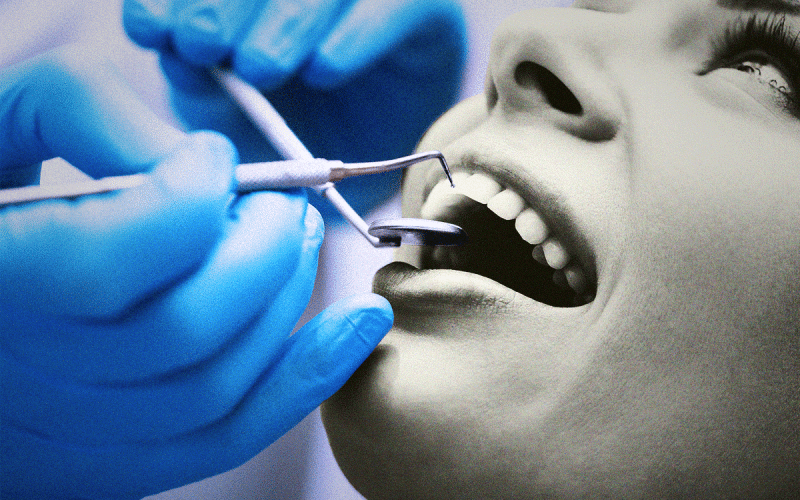You might wish to learn more about dentistry if you’re interested in a medical career. Assisting people in taking care of their teeth can be a rewarding and lucrative career. Although being a dentist involves much education and devotion, the financial rewards can be tremendous. Additionally, we list the average dentist salary by state, how much a dentist makes a year, answer frequently asked questions about dentist wages, and so much other information.
How Much Do Dentists Make?
In the United States, the average annual compensation for a dentist is $199,363. Dentistry is one of the most well-paid medical specialties. Dentists who operate their own practice can earn much more money than ordinary people. In the discipline of dentistry, oral surgeons and endodontists earn the highest incomes.
The geographic location and type of practice have an impact on a dentist’s compensation. In addition, those that supply services to a heavily populated or rich location should expect to earn more money. Salary potential is also affected by the number of dentists in the area; the fewer dentists, the better the earning potential. Once you’ve built a patient base and hired other dentists to work for you, opening your own practice provides you with more control over your revenue.
What Is the Job Outlook for Dentists??
According to the United States Bureau of Labor Statistics 2018 Occupational Outlook Handbook, the number of dentist jobs is predicted to expand by 7% between 2018 and 2028, faster than the overall job growth rate. Dentists will remain in great demand for the foreseeable future, according to these statistics. Dentists are in high demand, even when compared to other healthcare professions, especially in regions with an elderly population. New opportunities for dentists will emerge as medical research continues to link oral health to overall wellness, increasing the demand for qualified experts.
What Does a Dentist Do?
One of the most important roles of a dentist is to promote excellent dental hygiene. This can help you avoid problems in your mouth or other regions of your body.
A dentist also diagnoses and treats gum, tooth, and oral disorders. When performing dental operations, dentists employ sophisticated technology and equipment such as X-ray machines, lasers, drills, brushes, scalpels, and other medical tools. To prevent the spread of germs or pathogens, they also wear protective equipment such as gloves, masks, and safety glasses.
Some common dentistry tasks include:
- Teaching people about dental hygiene
- Filling cavities
- Removing buildup or decay from teeth
- Repairing or removing damaged teeth
- Reviewing X-rays and diagnostics
- Giving anesthesia
- Putting in fillings or sealants
- Checking the growth of teeth and jawbones.
Dentistry necessitates a collaborative effort, with the dentist serving as the team’s leader. Dental assistants, hygienists, and lab technicians support the dentist. The team works together to ensure that people receive high-quality dental care.
Types of dentistry
You may choose to specialize in a different area of dentistry, such as:
#1. Community dental care
Working in patients’ homes, nursing homes, and community clinics to serve patients with specific needs who are unable to visit a high-street practice.
#2. Dental public health
carries out non-clinical work, assessing the dental health needs of populations rather than individuals.
#3. Hospital dental care
Dealing with severe cases and providing therapy to long-stay hospital patients, an emergency treatment for short-stay patients, or teaching the general public
#4. Armed forces
providing a comprehensive range of dental services for armed forces personnel in the UK and abroad, operating as a military dental officer.
Reasons to See a Dentist
There are several reasons to see a dentist, and it’s important to go for a dental checkup every six months.
#1. Preventive Care
Your dentist will first look for any signs of mouth cancer, gum disease, or tooth decay. Regularly inspecting these items can assist to prevent more significant issues in the future.
Plaque and tartar accumulation, which cause tooth decay and gum disease, will be removed by your dental hygienist during your cleaning. Your dentist and hygienist can work together to provide you with advice on how to effectively care for your teeth at home.
#2. Pain or Discomfort
It’s time to contact a dentist if you’re experiencing pain or discomfort in your teeth, mouth, jaws, or gums. Something is wrong if you have pain or swelling in your neck, mouth, or face. Similarly, if your gums are bleeding or you’re having difficulties chewing or swallowing, you should see a dentist to determine what’s causing the problem.
#3. Maintenance and Health
If you’ve already had a dental procedure, double-check that everything is still in working order. A dentist, like your medical doctor, can assist monitor your health whether you’re pregnant, using tobacco, or coping with ongoing medical difficulties.
How much does a Dentist make?
Dentists in the United States earn an average of $13,867 per month as of November 22, 2021.
While monthly wages for dentists range from $10,833 (25th percentile) to $16,167 (75th percentile) on ZipRecruiter, the majority of dentists’ salaries now range from $10,833 (25th percentile) to $16,167 (75th percentile) across the United States. The typical compensation for a Dentist ranges significantly (up to $5,333), implying that there may be several prospects for promotion and greater pay dependent on skill level, location, and years of experience.
According to recent job posting activity on ZipRecruiter, the Dentist employment market in Lagos, Nigeria, and throughout the state is not very active at the moment, since few organizations are hiring. A dentist in your area earns an average of $13,867 a month, which is the same as the national average. Dentist incomes rank first out of 50 states nationwide.
In fact, ZipRecruiter regularly checks our database of millions of active jobs published locally throughout America to provide the most accurate monthly salary range for Dentist positions.
10 States Where Dentists Earn the Most Money
Dentists refer to the particular occupation recognized by the BLS as “dentists, general” for the purposes of this study. A dentist’s average yearly compensation in the United States is $175,840, more than three times the national average annual salary of $51,960 for all occupations. Furthermore, the average dentist’s pay has increased by 6.8% in the last five years, from $164,570 in 2013 to the current level.
The problem is that the average dentist’s pay varies significantly depending on where you live. The average dental salary in many areas is $200,000, while it might be as low as $50,000 less than the national average in other places.
Below is a list of the top 10 highest-paying states for dentists:
- Delaware average dentist salary: $264,440
- Alaska’s average dentist salary: is $259,350
- Rhode Island average dentist salary: $254,190
- Minnesota average dentist salary: $227,280
- New Hampshire average dentist salary: $226,300
- Connecticut average dentist salary: $213,390
- Wisconsin average dentist salary: $213,210
- North Dakota average dentist salary: $212,380
- North Carolina average dentist salary: $212,160
- Nevada average dentist salary: $210,710
The average compensation of dentists in the United States is influenced by supply and demand considerations. No. 8 North Dakota, No. 2 Alaska, and No. 1 Delaware employ fewer than 300 dentists and are among the best-paying states for dentists. Dentists in Nevada and New Hampshire, on the other hand, pay no state individual income tax, except in New Hampshire on interest and dividends.
Do Dentists Get Good Money?
The annual income for dentists is typically around $182,110 on average. Dentistry is one of the medical specialties that offer the highest salaries. It’s possible for dental experts and those who run their own practices to bring in substantially more income than the typical dentist does. In the discipline of dentistry, the greatest pay can be found in the specialties of oral surgery and endodontics.
Is Dentistry School Hard?
Dental school is extremely challenging, and it frequently comes close to matching the difficulty of medical school. The excessive quantity of studying that dental school students are expected to complete can be challenging for many of them. It contains a tremendous amount of dental information that must not only be committed to memory but also put to use in one’s professional life.
How Much is Dental School?
For students attending private or out-of-state dental schools, the annual tuition and fees can range anywhere from $53,000 to $70,000 on average. This is the cost of the first year of dental school. Less expensive options for public schools can cost up to $40,000 per year, while the most prestigious private schools can cost as much as $72,300 per year.
Do Dentists Make 1 Million a Year?
The annual revenue that general practices bring in is approximately $771,000, while the annual income that specialists bring in is approximately $1.1 million. If this is the case, then why do dentists not make more money? The answer is straightforward: overhead costs. Both general practitioners and specialists are devoting 75% of their annual income to overhead expenses, which leaves only a 25% margin for profit.
10 States Where Dentists Earn the Least Money
The bottom ten states with the lowest pay for dentists are a strange geographical combination. Dentists are paid less in some southern states, such as Mississippi and West Virginia, which are logical, but they also have lower-than-average wages for most jobs. However, some states, such as California, have unusually high earnings for most jobs when compared to other states. Wyoming is especially intriguing since it has a small number of dentists, which has benefitted dentist pay in some of its bordering states, but not in Wyoming.
Here’s a look at the bottom 10 states for dentist salaries:
- Louisiana average dentist salary: $124,020
- Wyoming average dentist salary: $125,120
- Nebraska average dentist salary: $135,080
- Utah average dentist salary: $138,970
- West Virginia average dentist salary: $139,170
- California average dentist salary: $151,490
- Maryland average dentist salary: $1051,950
- Mississippi average dentist salary: $153,810
- Pennsylvania average dentist salary: $153,950
- Kentucky average dentist salary: $154,230
What Is the Dentist Salary by Place of Employment?
A dentist’s income is affected by characteristics such as industry, experience, and employer, in addition to geography and education. Also, residential intellectual and developmental disability, mental health, and substance abuse facilities ($197,370); thus, offices of other health practitioners ($195,850); state government, excluding schools and hospitals ($183,320); dentists’ offices ($180,660); and employment services ($165,330) are the top-paying industries for this career. The majority of dentists are full-time professionals. Similarly, some dentists are available after hours or on weekends.
What Is the Average Dentist Salary by State
| State | Annual Salary | Monthly Pay | Weekly Pay | Hourly Wage |
|---|---|---|---|---|
| Massachusetts | $185,181 | $15,432 | $3,561 | $89.03 |
| Hawaii | $184,645 | $15,387 | $3,551 | $88.77 |
| Rhode Island | $178,135 | $14,845 | $3,426 | $85.64 |
| North Dakota | $174,895 | $14,575 | $3,363 | $84.08 |
| Alaska | $174,105 | $14,509 | $3,348 | $83.70 |
| Nevada | $172,730 | $14,394 | $3,322 | $83.04 |
| Washington | $172,585 | $14,382 | $3,319 | $82.97 |
| South Dakota | $169,788 | $14,149 | $3,265 | $81.63 |
| New York | $169,053 | $14,088 | $3,251 | $81.28 |
| Oregon | $167,870 | $13,989 | $3,228 | $80.71 |
| Maryland | $166,492 | $13,874 | $3,202 | $80.04 |
| Kansas | $166,402 | $13,867 | $3,200 | $80.00 |
| Nebraska | $163,407 | $13,617 | $3,142 | $78.56 |
| New Hampshire | $163,297 | $13,608 | $3,140 | $78.51 |
| Virginia | $161,264 | $13,439 | $3,101 | $77.53 |
| Colorado | $157,319 | $13,110 | $3,025 | $75.63 |
| South Carolina | $157,306 | $13,109 | $3,025 | $75.63 |
| Mississippi | $155,997 | $13,000 | $3,000 | $75.00 |
| Delaware | $155,735 | $12,978 | $2,995 | $74.87 |
| California | $155,648 | $12,971 | $2,993 | $74.83 |
| Missouri | $155,447 | $12,954 | $2,989 | $74.73 |
| Vermont | $153,712 | $12,809 | $2,956 | $73.90 |
| Oklahoma | $151,874 | $12,656 | $2,921 | $73.02 |
| Kentucky | $151,732 | $12,644 | $2,918 | $72.95 |
| Wyoming | $151,469 | $12,622 | $2,913 | $72.82 |
| Connecticut | $150,805 | $12,567 | $2,900 | $72.50 |
| Arkansas | $148,240 | $12,353 | $2,851 | $71.27 |
| Michigan | $147,502 | $12,292 | $2,837 | $70.91 |
| Illinois | $147,439 | $12,287 | $2,835 | $70.88 |
| West Virginia | $146,938 | $12,245 | $2,826 | $70.64 |
| Idaho | $145,970 | $12,164 | $2,807 | $70.18 |
| New Jersey | $145,146 | $12,095 | $2,791 | $69.78 |
| Maine | $144,811 | $12,068 | $2,785 | $69.62 |
| Pennsylvania | $144,452 | $12,038 | $2,778 | $69.45 |
| Montana | $143,986 | $11,999 | $2,769 | $69.22 |
| Arizona | $142,505 | $11,875 | $2,740 | $68.51 |
| Minnesota | $142,280 | $11,857 | $2,736 | $68.40 |
| Tennessee | $141,998 | $11,833 | $2,731 | $68.27 |
| Indiana | $141,591 | $11,799 | $2,723 | $68.07 |
| Texas | $141,120 | $11,760 | $2,714 | $67.85 |
| Wisconsin | $141,051 | $11,754 | $2,713 | $67.81 |
| Ohio | $140,971 | $11,748 | $2,711 | $67.77 |
| Utah | $139,385 | $11,615 | $2,680 | $67.01 |
| Louisiana | $137,985 | $11,499 | $2,654 | $66.34 |
| Georgia | $137,472 | $11,456 | $2,644 | $66.09 |
| Iowa | $136,173 | $11,348 | $2,619 | $65.47 |
| Alabama | $134,256 | $11,188 | $2,582 | $64.55 |
| North Carolina | $134,047 | $11,171 | $2,578 | $64.45 |
| New Mexico | $133,980 | $11,165 | $2,577 | $64.41 |
| Florida | $129,569 | $10,797 | $2,492 | $62.29 |
Is Dentistry a Happy Job?
Dentists, as a profession, have a fairly high rate of unhappiness, generally speaking. It is a well-known fact that the rate of suicide among dentists is significantly higher than the national average. And despite the fact that I am, in all honesty, very content with the work that I do, I can see why some dentists aren’t. The work that we undertake is highly taxing on the body.
Can I Get into Dentistry With Low Grades?
The decision to pursue a career in dentistry is an excellent one; yet, if one does not have strong grades or qualifications, this path may be challenging. If your grades aren’t up to par, you may find that your application to dentistry school, which is highly competitive, may not result in an offer. It’s possible that this is because of poor results received in GCSE or A Level exams, or even poor scores on the UCAT.
Is Dental School Worth it Financially?
Those who are committed to spending a total of eight years in college in order to become a professional and make a mean annual salary that may range anywhere from $180,830 to $237,990 will find that dental school is an investment that is well worth it. Attending dental school comes at a hefty financial and time investment, but graduates are rewarded with a profitable and respected professional career.
FAQs
Do dentists get paid well?
Dentists in some places are so well compensated that they earn more than the average doctor. According to a 2012 report in The Journal of the American Medical Association, the average hourly wage of a dentist in America is $69.60 vs. $67.30 for a physician.
How much does a dentist make UK?
Most dentists are self-employed contractors in general practice, mixing NHS with private work. Profits of dental practices vary greatly but in general, you can earn around £50,000 to £110,000. Wholly private dentists can earn £140,000+.
Is dental school Hard?
Dental school is a series of ups and downs. Much like undergrad, some semesters are harder than others. Unlike undergrad though, all of your classmates will have the same coursework each semester, so you’re never the only one who’s overloaded with tough classes.






